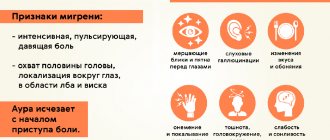Visiting the dentist is a very unpleasant experience. Having headaches after visiting the dental office is a common occurrence. If a doctor removes or prescribes treatment for a diseased tooth, a headache may occur.
The reasons for this may be the following:
- Side effect from medications;
- Severe dental disease;
- Poor oral health;
- A large number of teeth undergoing treatment;
- Poor condition of the body as a whole, the presence of chronic diseases;
- Senile age of the patient;
Most often, pain caused by the cessation of the painkiller goes away on its own. If the pain only gets worse, you need to take an analgesic and consult a specialist for advice.
One of the possible causes of headaches may be the removal of a diseased tooth. Headaches occur especially often when a wisdom tooth is removed (the procedure is not always simple). This type of operation tends to damage bone tissue and gums, which leads to pain.
When correcting a malocclusion, headaches often appear. Pain can be of various types:
- Pain in the ear area;
- The occurrence of pain in the temporal part of the head;
- The occurrence of pain in the occipital part;
If you follow clear treatment instructions, this type of headache goes away in a short time.
Headaches after using anesthesia
Very often, dentists use local anesthesia when treating teeth. After undergoing anesthesia, many patients experience headaches. There are several reasons for this type of pain:
- Presence of intolerance to anesthesia or incorrect choice of medication;
- Location of the diseased tooth in remote places;
Most often, the headache is aching in nature and tends to increase when moving the head.
If headaches began after the extraction of a diseased tooth, it is necessary to find the cause of the pain; it may be a complication of the operation.
How to treat pain after surgery?
In the treatment of post-operative pain, different medications are used with different methods of administration. In addition, the use of alternative methods is permitted, which can be used in case of mild to moderate pain. To prescribe appropriate pain treatment, it is important to know what medications (including painkillers) you have already used, whether you are allergic to medications, and whether you have had any side effects. When prescribing medication, we take into account modern medical principles related to the operation you performed and pain medications. The choice of an appropriate painkiller, the dose of the drug and the duration of treatment depend on the severity of the pain (mild, moderate or severe pain), the type of pain (whether there was, for example, wound pain or nerve pain), the person himself (elderly, child, pregnant woman, etc.) ), as well as from concomitant diseases. To achieve the best effect of painkillers, take your medications regularly (at regular intervals). Painkillers of different effects are often combined.
Groups of painkillers
Medicines are used as painkillers, which are divided according to the type of mechanism of action into three main groups:
- Simple painkillers. For example paracetamol, ibuprofen and diclofenac.
- Opioids. Medicines in this group are divided into weak opioids - for example, tramadol, codeine, and strong opioids - for example, morphine.
- Maintenance medications. They are used, for example, to treat nerve pain.
Headache due to complications arising after dental intervention
Many patients experience headaches after visiting the dentist. Various factors can contribute to the appearance of pain symptoms:
- The appearance of complications that manifested themselves during dental treatment;
- Intolerance and allergic reactions to the use of drugs;
- Contraindications to tooth extraction;
- The appearance of a specific odor in the place of dental treatment;
- The presence of inflammation of the tissues of the oral cavity;
- The presence of swelling of the oral tissues;
Most often, pain occurs in several places. They begin in the jaw and gradually spread throughout the head. Painful sensations can be either sharp or aching. Complications after going to the dentist may depend on the presence of certain diseases in the patient:
- Very often, pain appears in patients suffering from diabetes. The headache may last for a long time;
- Ear disease, which can progress during dental treatment and cause headaches;
- Delay in contacting a specialist, which results in severe diseases of the teeth and gums, which are accompanied by painful symptoms of the head;
After symptoms of complications occur, you must go to the hospital to prescribe effective treatment. The occurrence of headaches may be due to the progression of certain dental diseases. Such as:
- Periodontitis – aching pain occurs in the temporal parts of the head;
- Alveolitis - severe pain occurs that begins in the jaw area;
Recovery and rehabilitation period after removal of a brain tumor
The main goal of rehabilitation after a brain tumor is the maximum restoration of the patient’s lost functions and his return to normal everyday life, in which he can take care of himself independently, without anyone’s help. If it is impossible to restore lost functions, measures are taken to adapt the person to new abilities and limitations that he will have to come to terms with and adapt to the new body.
An early start to the recovery period minimizes the risk of disability. Before starting rehabilitation measures, a council of top-class specialists gathers for each clinical case. This is a surgeon, a psychologist, a physical therapy doctor, a rehabilitation specialist, and nurses and junior medical staff. At such a meeting, the extent of the patient's brain damage, its prognosis and options are discussed. Taking into account the obtained data and analyses, a plan for the rehabilitation period will be drawn up for the person, following which the patient will be able to return to normal life.
A brain tumor is a psychologically serious disease, so at this time the participation of a psychologist and the support of loved ones is mandatory. As a means of recovery, patients are prescribed the following rehabilitation measures:
- Physiotherapy. Its use is symptomatic. It helps fight swelling and pain. It is possible to use phototherapy, myostimulation, magnetic therapy and laser therapy.
- Massage. Its use is especially important in patients who suffer from cuts to the extremities. Massage improves blood circulation, lymphatic drainage and helps restore lost sensitivity.
- Physiotherapy. Exercise therapy is an extremely important part of the recovery period. It allows you to fight vestibular disorders, restore lost functions and adapt a person to emerging limitations. You can perform the exercises in the first days after the operation. They are carried out in a passive position (lying on the bed) and there is a gradual increase in load. In the absence of contraindications, the patient is gradually transferred to an upright position and begins to resume walking. In parallel with this, it is possible to use exercises with equipment: balls or weights.
On average, the rehabilitation period takes about 3-4 months, subject to daily effort. This is a very labor-intensive process, but a team of experienced doctors and specialists can make the recovery period as easy as possible.
Headaches after dental implantation
Pain may occur during the recovery period and after dental implantation surgery. Patients usually experience headaches for several days after surgery. The cause of pain is inflammatory processes in the tissues surrounding the implant. For severe pain, the doctor will prescribe a painkiller. If the pain does not go away within five days, you should contact a specialist who will check the implants for surgical complications and prescribe appropriate treatment.
Anaesthesia and anesthesia
14 frequently asked questions about anesthesia and anesthesia General anesthesia - with this form of anesthesia, they sleep deeply, soundly and safely. Her response to pain is as repressed as her consciousness. Anesthetics are constantly supplied through the blood or breathing air. Therefore, this anesthesia is well controlled. Can be used in any surgery. (Masking anesthesia, laryngeal mask, anesthesia and intubation anesthesia)
Regional anesthesia - applies to a specific part of the body, depending on the plant. They remain conscious during the procedure or optionally choose twilight sleep, which includes spinal cord anesthesia (ankle and back anesthesia) and upper and lower limb locking. (plexus anesthesia, knee block, etc.)
Local anesthesia only makes a small part of your body insensitive to pain. This anesthesia procedure is performed by the surgeon himself.
What needs to be done before anesthesia?
Please tell your anesthesiologist about all the medications you are taking, including those you bought at the pharmacy! It is especially important to be sober, not to eat 6 hours before surgery and not to drink liquids 2 hours before surgery! (Exception: a few sips of water for taking important medications - but you should definitely check this with your anesthesiologist!)
On the day of anesthesia, refrain from smoking!
Remove makeup and nail polish!
Jewelry - including piercings - must be removed! In addition, glasses, contact lenses and hearing aids, as well as removable parts of teeth, as well as other prosthetics. Exceptions are possible only after consultation with an anesthesiologist.
Why can't you eat and drink before surgery?
Anesthesia eliminates protective reflexes (such as automatic swallowing). As a result, there is a risk of stomach contents entering the pharynx and then into the respiratory tract. This can lead to severe pneumonia. The risk of swallowing (aspiration) increases the shorter the last meal. Therefore, it is in your best interest to tell the anesthesiologist exactly when you last ate and drank.
Why can't I smoke on the day of surgery?
Smoking may increase stomach acid secretion and therefore has the same risk as eating before surgery. Stomach juice can drain back into the esophagus and into the lungs (aspiration), causing pneumonia there.
What are the risks and complications of general anesthesia? The most common complications:
Nausea after surgery (usually caused by drugs). It only occurs in patients with a certain predisposition and can be treated very well with medication.
Hoarseness (after intubation) usually resolves within 24 hours.
Aspiration (which means foreign bodies entering the trachea or lungs when swallowed). If the patient adheres to the prescribed preoperative behavioral rules (“sober”!), aspiration is practically impossible. This hazard is most common in acute procedures (unplanned surgeries).
Cardiovascular disorders (dangerous in pre-existing cardiovascular diseases) can be caused by the stress of surgery.
Cooling (today very rare: during surgery the patient is warmed up accordingly) is manifested by postoperative tremor.
Damage to teeth can occur during intubation - but is very rare.
Malignant hyperthermia (extremely rare, 1:250,000, but life-threatening), caused by the patient's genetic predisposition. This complication begins with a significant increase in body temperature and can lead to kidney failure. If there is a known history of malignant hyperthermia in the family, be sure to tell your anesthesiologist!
How quickly does anesthesia work?
Whether the anesthesia begins through the bloodstream or the breathing air, you will fall asleep within seconds.
Is it possible to wake up during surgery or hear something?
After you fall asleep, your anesthesiologist constantly checks the depth of anesthesia in addition to vital organ functions. With the medications available today, especially gaseous anesthetics, you can almost completely eliminate the possibility of waking up or listening during surgery. In addition, modern devices make it possible to measure the depth of anesthesia.
Will there be any pain after the operation?
About 25% of patients complain of nausea after surgery. Reasons include personal predisposition (eg, motion sickness), type of surgery, and ultimately the anesthesia procedure chosen. You can counteract nausea with preventive medications. Although nausea cannot be completely avoided, it is less frequent and milder.
When can I eat and drink again?
Depending on the type of operation, this time interval can vary greatly. It is best to wait at least 3 hours to drink and feed solid food for at least 6 hours.
Will there be pain when waking up after anesthesia?
No. Although pain cannot be completely avoided after surgery, you will, of course, be given appropriate pain therapy both during the recovery phase and afterwards. The need for painkillers mainly depends on the operation being performed.
When can you go home after general anesthesia for an outpatient procedure?
Discharge should always be carried out by the surgeon and anesthesiologist no earlier than 2 hours after the operation. The patient is again warned about the need to drive a vehicle during the first 24 postoperative hours, enter into any contracts, or take alcohol or sedatives (except for prescribed medications).
What is regional anesthesia?
Regional anesthesia is the temporary loss of sensation of pain in a specific area of the body due to interruption of pain transmission to the brain. Typically the patient remains conscious during this form of anesthesia.
What types of regional anesthesia are there?
Interruption of anesthesia is possible in several places: In the area of the spinal cord (“cross stitch”) In the area of the nerve plexus (plexus), that is, where the nerve fibers merge with the nerves after leaving the spinal cord (plexus of anesthesia) In the area of individual nerves (so called peripheral regional anesthesia or peripheral nerve blocks)
Spinal and epidural anesthesia.
Both are regional spinal cord anesthesia procedures. The difference between the two methods is the depth of penetration. Unlike spinal anesthesia, with epidural anesthesia, the height of the puncture site and the amount of local anesthesia determine the location and size of the anesthesia area. "Regional anesthesia" occurs because only a specific part of the body, the "spinal cord," is anesthetized because the nerves coming out of the spinal cord are anesthetized. Unlike general anesthesia, the patient is conscious during the operation.
Spinal anesthesia can be used for all operations below the navel, that is, for operations on the legs, pelvis, perineum and lower abdomen. With epidural anesthesia, operations can be performed on the upper abdomen, pelvic and genital areas, and on the legs. Spinal anesthesia is a safe procedure using modern, state-of-the-art equipment. As with any method, complications are sometimes possible, but they are usually temporary. Permanent damage is extremely rare.
Are you awake during surgery under local anesthesia? Depending on the patient's wishes, this may be awake. But if he prefers to sleep, he can be given a mild tranquilizer.
Does the patient have to be sober before local anesthesia?
As with general anesthesia, the same rules of conduct apply to regional anesthetics.
Treatment methods for headaches after dental surgery
If you have a headache for a long time, your dentist will prescribe treatment using the following medications:
- Anti-inflammatory drugs - help relieve inflammation;
- Analgesics – eliminate pain;
- Antispasmodics – relieve spasms that cause pain;
If the cause of pain is inflammatory processes in the oral cavity, then the presence of toxins, which are eliminated by the use of antibiotics, should initially be eliminated, and only then the prescribed medications should be used.
Taking such medications must be done under the supervision of a physician. The use of such drugs is contraindicated for patients suffering from stomach diseases.
Relieving pain with folk remedies
If you experience headaches after a recent visit to the dentist, you must first identify the cause of the disease. It is impossible to do this on your own without visiting a doctor. You can use some traditional medicines, but you should consult your doctor before using them.
- Drinking mint tea is good for eliminating cramps and reducing headaches;
- Freshly prepared viburnum juice - drink one hundred grams for headaches twice a day for five days;
- The use of hot foot baths is a proven folk method for relieving headaches;
You should know that the occurrence of headaches after dental treatment may be one of the first prerequisites for the occurrence of more dangerous diseases.
Painful sensations mean that inflammatory processes are occurring in the body, so you need to consult a specialist; you should not self-medicate. Moscow metro station Zvezdnaya, Danube Avenue, 23
What is acute postoperative pain?
Pain is a subjective and unpleasant sensation that affects consciousness and impairs well-being. Acute pain is short-lived, most often has a clearly defined area, a specific onset time, and subjective and objective physical signs: heart rate and breathing become faster and blood pressure rises. Severe pain interferes with sleep and creates feelings of fear and anxiety. Acute postoperative pain occurs due to a surgical procedure or surgery. The severity of pain depends both on the severity of the operation and the size of the surgical wound, and on the person’s pain threshold. People feel and react to pain differently. Pain sensations may also be influenced by the patient's early experiences with pain, his age, gender, cultural background, and psychological factors. In the case of children, their parents' attitude towards pain may also influence pain sensations.







